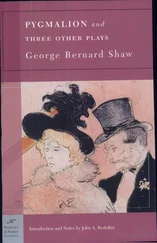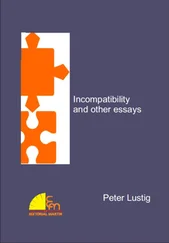Peter Handke - Kaspar and Other Plays
Здесь есть возможность читать онлайн «Peter Handke - Kaspar and Other Plays» весь текст электронной книги совершенно бесплатно (целиком полную версию без сокращений). В некоторых случаях можно слушать аудио, скачать через торрент в формате fb2 и присутствует краткое содержание. Год выпуска: 1970, Издательство: Farrar Straus Giroux, Жанр: Драматургия, на английском языке. Описание произведения, (предисловие) а так же отзывы посетителей доступны на портале библиотеки ЛибКат.
- Название:Kaspar and Other Plays
- Автор:
- Издательство:Farrar Straus Giroux
- Жанр:
- Год:1970
- ISBN:нет данных
- Рейтинг книги:4 / 5. Голосов: 2
-
Избранное:Добавить в избранное
- Отзывы:
-
Ваша оценка:
- 80
- 1
- 2
- 3
- 4
- 5
Kaspar and Other Plays: краткое содержание, описание и аннотация
Предлагаем к чтению аннотацию, описание, краткое содержание или предисловие (зависит от того, что написал сам автор книги «Kaspar and Other Plays»). Если вы не нашли необходимую информацию о книге — напишите в комментариях, мы постараемся отыскать её.
Waiting for Godot
In
and
, one-character "speak-ins," Handke further explores the relationship between public performance and personal identity, forcing us to reconsider our sense of who we are and what we know.
Kaspar and Other Plays — читать онлайн бесплатно полную книгу (весь текст) целиком
Ниже представлен текст книги, разбитый по страницам. Система сохранения места последней прочитанной страницы, позволяет с удобством читать онлайн бесплатно книгу «Kaspar and Other Plays», без необходимости каждый раз заново искать на чём Вы остановились. Поставьте закладку, и сможете в любой момент перейти на страницу, на которой закончили чтение.
Интервал:
Закладка:
Fallen down.
He begins to speak a little:
Because.
Often.
Me.
Never.
Least.
Into.
Let.
Me.
Nothing.
Although.
How.
Because me here at least already. They continue to stuff him with enervating words: For a closet on which you sit is a chair, or not? Or a chair on which you sit is a closet when it stands on the place of the closet, or not? Or a table which stands on the place of the closet is a chair when you sit on it, or not? Or a chair on which you sit is a closet as soon as it can be opened with a key and clothes hang in it, even if it stands on the place of the table and you can sweep the floor with it; or not? He comes closer and closer to uttering a regular sentence:
Into the hands.
Far and wide.
Or there.
Fell out.
Beat eyes.
No is.
Goes neither home.
To the hole.
Goat eyes.
Reservoir.
How dark.
Pronounced dead.
If I myself already here at least tell. A table is a word you can apply to the closet, and you have a real closet and a possible table in place of the table, and? And a chair is a word you can apply to the broom, so that you have a real broom and a possible chair in place of the chair, and? And a broom is a word you can apply to the shoelace, and you have a real shoelace and a possible broom in place of the shoelace, and? And a shoelace is a word you can apply to the table, so that you suddenly have neither a table nor a shoelace in place of the table, and? Eel. Run.
Boiled. From behind.
Right. Later. Horse.
Never stood. Screams.
Faster. Puss. Thrashing.
Whimpers. The knee.
Back. Crawls.
Hut. At once.
Candle. Hoarfrost. Stretch.
Awaits. Struggles.
Rats. Unique. Worse.
Walked. Living. Farther.
Jumped. Yes. Should. The chair still hurts you, but the word chair already pleases you. The table still hurts you but the word table already pleases you. The closet still hurts you a little, but the word closet already pleases you more. The word shoelace is beginning to hurt you less because the word shoelace pleases you more and more. The broom hurts you less the more the word broom pleases you. Words no longer hurt you when the word words pleases you. The sentences please you more the more the word sentence pleases you: Entered am chair without rags on the shoelace, which meantime talked to death struck the feet, without broom on the table, which are standing turned over some distance from the closet, barely two saving drops on the curtain. Words and things. Chair and shoelace. Words without things. Chair without broom. Things without words. Table without thing. Closet without shoelace. Words without table. Neither words nor things. Neither words nor shoelace. Neither words nor table. Table and words. Words and chair without things. Chair without shoelace without words and closet. Words and things. Things without words. Neither word nor things. Words and sentences. Sentences: Sentences: Sentences: Kaspar utters a normal sentence:
At that time, while I was still away, my head never ached as much, and I was not tortured the way I am now that I am here. It becomes dark.
XIX
It becomes light, Kaspar slowly begins to speak: After I came in, as I see only now, I put, as I see only now, the sofa into disorder, whereupon, as I see only now, the closet door with which I, as I see only now, played, as I see only now, with my foot, was left open, whereupon I, as I see only now, ripped, as I see only now, the drawer out of the table, whereupon, as I see only now, I threw over another table, thereupon a rocking chair, as I see only now, also turned over, as well as a further chair and broom, as I see only now, whereupon I walked toward, as I see only now, the only chair still standing (as I see only now) and sat down. I neither saw anything nor heard anything, and I felt good. He gets up. Now I have gotten up and noticed at once, not just now, that my shoelace was untied. Because I can speak now I can put the shoelace in order. Ever since I can speak I can bend down to the shoelace in normal fashion. Ever since I can speak I can put everything in order. He bends down toward the shoelace. He moves one leg forward so as to be able to bend down better toward the shoelace. But because he was standing with the other leg on the shoelace, he stumbles as he moves the leg forward and falls after making a futile attempt to remain upright — for a moment it looks as though he might stop himself, but he doesn’t. In the process he also overturns the chair he had been sitting on. After a moment of silence: Ever since I can speak I can stand up in a normal fashion; but falling only hurts ever since I can speak; but the pain when I fall is half as bad ever since I know that I can speak about the pain; but falling is twice as bad ever since I know that one can speak about my falling; but falling doesn’t hurt at all any more ever since I know that I can forget the pain; but the pain doesn’t stop at all any more ever since I know that I can feel ashamed of falling.
XX
Kaspar sets in. He speaks slowly: Do remember that and don’t forget it!
Do remember that and don’t forget it!
Do remember that and don’t forget it!
Do remember that and don’t forget it!
Do remember that and don’t forget it!
Do remember that and don’t forget it!
Do remember that and don’t forget it!
Do remember that and don’t forget it!
Do remember that and don’t forget it!
Do remember that and don’t forget it!
Do remember that and don’t forget it!
Do remember that and don’t forget it! Ever since you can speak a normal sentence you are beginning to compare everything that you perceive with this normal sentence, so that the sentence becomes a model. Each object you perceive is that much simpler, the simpler the sentence with which you can describe it: that object is a normal object about which no further questions remain to be asked after a short simple sentence: a normal object is one which is entirely clarified with a short simple sentence: all you require for a normal object is a sentence of three words: an object is normal when you don’t first have to tell a story about it. For a normal object you don’t even require a sentence: for a normal object the word for the object suffices. Stories only begin with abnormal objects. You yourself are normal once you need to tell no more stories about yourself: you are normal once your story is no longer distinguishable from any other story: when no thesis about you provokes an anti-thesis. You should not be able to hide behind a single sentence any more. The sentence about your shoelace and the sentence about you must be alike except for one word: in the end they must be alike to the word.
XXI
A spotlight follows Kaspar’s hand which is slowly approaching the loose shoelace. It follows Kaspar’s other hand, which is also approaching the shoelace. He slowly crosses one shoelace over the other. He holds the crossed ends up. He winds one end precisely around the other. He holds up both ends, crossed. He draws the shoelaces together, slowly and deliberately. He elaborately makes a noose with one lace. He places the other lace around the noose. He pulls it through underneath. He draws the noose tight. The first order has been created. The spotlight is extinguished. The table stands. With the word table you think of a table which stands: a sentence is not needed any more. The scarf is lying. When the scarf is lying, something is not in order. Why is the scarf lying? The scarf already requires other sentences. Already the scarf has a story: does the scarf have a knot tied at one end, or has someone thrown the scarf on the floor? Was the knot ripped off the scarf? Was someone choked to death with the scarf? The curtain is falling just now: at the word curtain you think of a curtain that is falling just now: a sentence is not needed any more. What is worth striving for is a curtain that is just falling.
Читать дальшеИнтервал:
Закладка:
Похожие книги на «Kaspar and Other Plays»
Представляем Вашему вниманию похожие книги на «Kaspar and Other Plays» списком для выбора. Мы отобрали схожую по названию и смыслу литературу в надежде предоставить читателям больше вариантов отыскать новые, интересные, ещё непрочитанные произведения.
Обсуждение, отзывы о книге «Kaspar and Other Plays» и просто собственные мнения читателей. Оставьте ваши комментарии, напишите, что Вы думаете о произведении, его смысле или главных героях. Укажите что конкретно понравилось, а что нет, и почему Вы так считаете.












